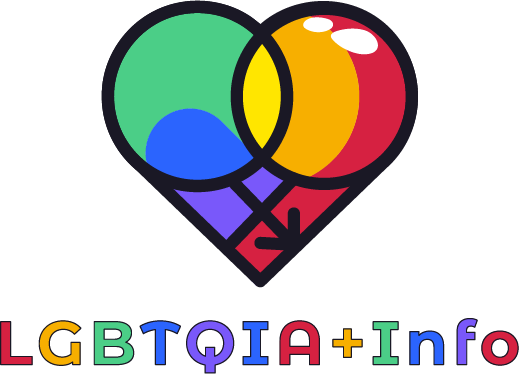Even though we live in a more accepting and inclusive society, the LGBTQ community continues to face widespread prejudice. Discrimination against the LGBTQ community has persisted for generations, negatively impacting the lives of people who have experienced it. The purpose of this essay is to examine the many forms of anti-queer prejudice and the harm they do in order to encourage readers to take action.
What is Queer Discrimination?
Discrimination against people who identify as queer, including but not limited to lesbian, gay, bisexual, transgender, and queer/questioning (LGBTQ+), is known as queer discrimination. When individuals are excluded from certain social groups or given less favorable treatment just because of their sexual orientation or gender identity, we are engaging in this sort of discrimination.
Queer people face discrimination in many different arenas, including but not limited to the social, legal, occupational, residential, and medical spheres. The effects of all forms of prejudice on the lives of LGBT people may be devastating.
Types of Queer Discrimination
-
Social Discrimination
Negative social attitudes, actions, and judgments are what we mean when we talk about social discrimination against LGBTQ people. Bullying, verbal abuse, social isolation, and harassment are only a few examples. Schools, workplaces, and public spaces are not immune to incidents of social prejudice.
-
Legal Discrimination
Laws and practices that limit the personal liberties of LGBTQ people are examples of legal discrimination. In certain nations, being gay or lesbian might make it difficult to get married, adopt a child, or find a gainful job. These policies and regulations may make it such that LGBTQ people are unable to exercise their fundamental liberties.
Find out how same-sex marriage is tearing apart the fabric of society in our article “Everything You Need to Know About Gay Marriage!”

-
Employment Discrimination
Unfair treatment of LGBT people in the job is known as “employment discrimination.” Harassment, discrimination, and even termination are all possible outcomes. Wage discrimination is another kind of workplace bias when LGBT people are paid less than their heterosexual coworkers while doing equivalent work.
-
Housing Discrimination
When people in the LGBTQ community are treated unfairly in the housing market, we call this “housing discrimination.” Queer people may face prejudice in the housing market due to their orientation or gender identity, and some landlords may refuse to rent to them or make other adjustments for them.
-
Healthcare Discrimination
Discrimination against LGBTQ people in the medical field is known as healthcare discrimination. Healthcare providers’ refusal to provide care is one example, but other forms of prejudice are possible as well. Discrimination in healthcare may also cause someone to be denied necessary medical treatment.
Effects of Queer Discrimination
Negative attitudes about the LGBTQ community may have far-reaching and lifelong consequences. Problems with mental health, physical health, education, relationships, and finances are just some of the outcomes that may stem from being discriminated against.
-
Mental Health Issues
Individuals who identify as LGBTQ and who experience prejudice are more likely to struggle with mental health problems including sadness, anxiety, and suicidal thoughts. Extreme mental health problems may develop from the chronic stress and anxiety brought on by discrimination, the fear of rejection or violence, and the sense of isolation.
-
Physical Health Issues
Physical health problems are another consequence of facing prejudice as a queer person. This is because feelings of stress and worry, brought on by prejudice, have been linked to lowered resistance to disease and the development of long-term conditions including cardiovascular disease, hypertension, and diabetes.
To learn more about the evolution of LGBTQ+ terminology, check out our article “Queer vs LGBTQ+”
-
Discrimination in Education
People who identify as LGBTQ may also encounter barriers to learning. This may manifest as verbal or physical abuse, or the refusal to participate in group activities. As a result, they may get disinterested in their studies and their overall performance may suffer.

-
Discrimination in Relationships
Queer people’s intimate connections may also be harmed by prejudice. It might make it hard to build healthy and satisfying relationships because of the resulting shame, guilt, and poor self-esteem.
-
Financial Instability
LGBTQ people who encounter prejudice may also struggle financially. Reasons for this include discrimination in the workplace, prohibitive healthcare costs, and inadequate housing and education opportunities. Poverty and economic misery may result.
Fighting Against Queer Discrimination
In order to build a diverse and welcoming society, fighting against LGBT prejudice is essential. For attitudes, laws, and regulations to change, there must be a coordinated effort.
-
Creating Safe Spaces
The battle against homophobia and transphobia depends on the existence of safe places for queer people. LGBTQ+ community centers, safe schools, and anti-bullying initiatives are all examples of this. Those who have experienced prejudice might find comfort and understanding in these welcoming environments.
-
Legal and Political Action
Fighting prejudice also requires political and legal action. You may do this by voting for politicians that support LGBTQ+ rights, by supporting policies that safeguard queer folks, and by campaigning for equal legal protections for the LGBTQ+ community.
-
Education and Awareness
Attitudes about LGBT people may be changed via education and awareness. LGBTQ+ education in schools, diversity training in the business, and public awareness campaigns are all examples of how this might be accomplished.
Conclusion
Discrimination based on sexual orientation or gender identity has substantial and far-reaching consequences for people who experience it. Safe places, political and legal advocacy, and educational and awareness campaigns are all important tools in the battle against prejudice. Only by working together can we build a society where everyone feels safe to be themselves.

